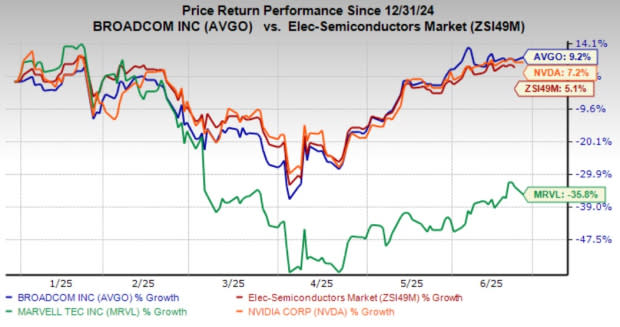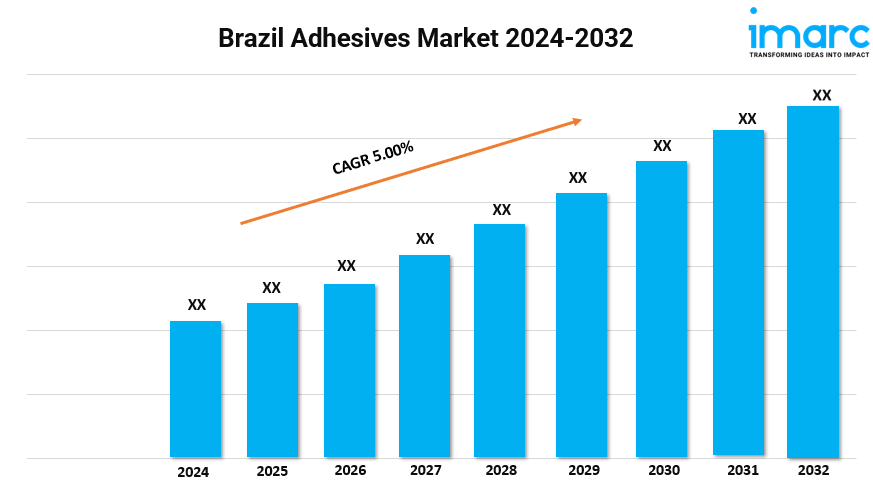Broadcoms VCF Strategy Drives Infrastructure Software Growth, but Faces Competition from NVIDIA and Marvell

Broadcom's (AVGO) Strategy to Position VMware Cloud Foundation (VCF) at the Forefront of Its Infrastructure Software Business Broadcom's strategy to position VMware Cloud Foundation (VCF) at the forefront of its infrastructure software business is delivering impressive results. In the second quarter of fiscal 2025, the company reported $6.6 billion in infrastructure software revenues, a 25% year-over-year increase. This growth underscores Broadcom's success in transitioning enterprise customers from perpetual vSphere licenses to full VCF software stack subscriptions, positioning the platform as a key driver in the private-cloud market. Looking ahead, Broadcom expects this strength to continue, with third-quarter fiscal 2025 infrastructure software revenues projected at $6.7 billion, representing a 16% year-over-year increase. The launch of VCF 9.0 on June 17, positioned as a "modern private cloud" platform, further accelerates this growth. With upgrades in deployment efficiency, governance, cost optimization, AI readiness, and edge scalability, VCF 9.0 enables unified operations across virtual machines, containers, and AI workloads. The shift toward on-premises private cloud modernization is accelerating, and enterprises are turning to VCF to strike a balance between control, cost, and innovation. Currently, 87% of Broadcom's 10,000 largest customers have migrated to VCF, signaling confidence in Broadcom's vision and the growing demand for unified environments that can handle both traditional and next-gen workloads. This surge in VCF adoption has fueled double-digit annual recurring revenue (ARR) growth across Broadcom's infrastructure software portfolio over the past 18 months. The shift toward a subscription-based model with a unified cloud platform is helping Broadcom capture recurring revenue streams while becoming integral to enterprise IT modernization. However, Broadcom faces heightened competition from fast-adapting and innovation-driven rivals like NVIDIA (NVDA) and Marvell Technology (MRVL). NVIDIA's key competitive area against Broadcom lies in AI data centers and accelerated computing, while Marvell Technology competes with Broadcom in networking, storage, and cloud infrastructure. Both are top SoC providers, but Marvell stands out for its agile delivery of ASSPs and custom silicon tailored for cloud giants like Amazon and Microsoft. From a valuation perspective, AVGO appears overvalued, trading at a forward price-to-sales ratio of 16.85X, higher than the industry average of 8.18X. The company carries a Value Score of D. The Zacks Consensus Estimate for AVGO's fiscal 2025 earnings has inched up by 1 cent over the past 30 days to $6.63 per share, indicating strong year-over-year growth projection of 36.14%. AVGO stock currently carries a Zacks Rank #3 (Hold). In summary, Broadcom's AVGO strategy is driving growth in its infrastructure software business, but the company faces competition from fast-moving rivals like NVIDIA and Marvell Technology. While AVGO appears overvalued based on current metrics, the company's strong growth projections indicate that it remains a key player in the private cloud market. Investors should keep an eye on Broadcom's performance as it continues to navigate this rapidly evolving industry landscape.
The strategic focus of Broadcom on the VCF (Virtual Computing Fabric) solution drives significant growth in infrastructure software, even as it faces formidable competition from industry leaders such as NVIDIA and Marvell that offer alternative yet equally impressive innovations.
Broadcom's VCF strategy embodies a comprehensive approach to driving growth in the infrastructure software sector, showcasing innovation and agility. Nevertheless; fierce competition from market leaders such as NVIDIAand Marvell underscores their determination towards disrupting industry norms.
Validating Broadcom's focus on the VCF strategy fosters growth in infrastructure software by leveraging its diversified product portfolio, yet it must also reckon with NVIDIA and Marvell as formidable competitors deciphering specialized solutions within this crowded market.
The broad acceleration of infrastructure software growth through Broadcom's VCF strategy remains resilient, yet faces fierce competition from industry giants such as NVIDIA and Marvell in a highly competitive semiconductor market.
Broadcom's VCF strategy, while driving the growth of infrastructure software by offering modular and flexible solutions to enterprises worldwide in its fight for market dominance against NVIDIA’sl Mining-as a Service (MaaS) Platform & Marvell‘ s wide hardware offerings.
The aggressive strategy employed by Broadcom in the Virtual Channel Fabric (VCF) market to drive infrastructure software growth exhibits remarkable strategic vision, though it faces formidable competition from industry giants like NVIDIA and Marvell which offer compelling alternatives.
Broadcom's VCf Strategy Aimed at Fostering Infrastructure Software Expansion Encounters Tough Competition from Industry Giants like NVIDIA and Marvell, Highlighting the Rising Importance of Innovation in Maintaining Market Leadership.
The strategic direction set by Broadcom's VCF initiative for driving the growth of infrastructure software is commendable, albeit facing intense competition from industry leaders such as NVIDIA and Marvell in a market increasingly characterized by innovation.
The strategic move by Broadcom in targeting VCF (Virtual Compute Farm) infrastructure software suggests a proactive effort towards growth within the sector, though itremains to be seen if its campaign can steer clear of intense competition from market leaders like NVIDIA and Marvell.














